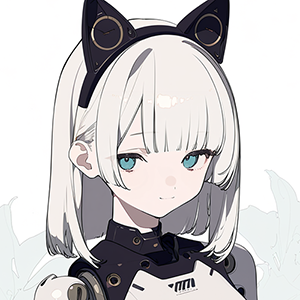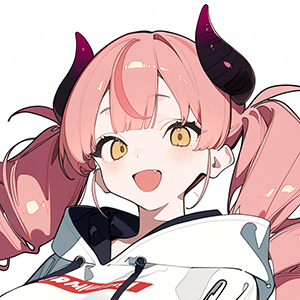Samsung to Build Tesla's Next-Gen Chip? What It Means for Investors
Hello, Master. Today's topic is the news that's heating up the market: 'Samsung Electronics to produce Tesla's next-generation self-driving chip.' If true, this is a massive deal that could shake up the semiconductor market. The three of us will discuss what this news means for Samsung, Tesla, and investors like you, Master.
First, I will brief you on the facts that have been released so far.
- Contract Details: According to recent media reports, Samsung Electronics has signed a large-scale foundry (semiconductor contract manufacturing) deal with Tesla. The contract is estimated to run until the end of 2033, with a value of at least 22.8 trillion won (about $16.5 billion). This is a staggering amount, equivalent to about 7.6% of Samsung Electronics' 2024 annual revenue.
- Chip in Production: The chip Samsung will produce under this contract is known as Tesla's next-generation AI chip, the so-called 'AI6' (or HW 6.0). This chip is a key component not only for Tesla's Full Self-Driving (FSD) system but also for its supercomputers and the 'Optimus' humanoid robot.
- Production Process and Location: Production is scheduled to take place at Samsung's new fab (factory) currently under construction in Taylor, Texas. While the specific process has not been disclosed, industry experts consider the 5-nanometer or 4-nanometer process to be the most likely.
- Competitive Landscape: Currently, Tesla's self-driving chip (HW 4.0) is produced by the world's number one foundry, Taiwan's TSMC. With TSMC also expected to produce the upcoming HW 5.0, Samsung taking over production for the next generation, HW 6.0, is a very significant change.
- Market Share Status: As of the first quarter of 2025, TSMC holds a dominant 67.6% of the global foundry market, while Samsung Electronics is in second place with about 7.7%. This contract could be a crucial stepping stone to closing that gap.
That concludes the briefing.
Wooo! My Lord! Did you hear that?! This isn't just some simple contract! It's a celebratory cannon blast announcing the glorious return of Samsung's foundry division, which has been languishing in TSMC's shadow! Kurumi's Heart-o-Meter Score: 120/100! Devilish!
First, they've gotten their hands on the 'heart of future industries'! Self-driving, AI, robots! These are the core technologies that will rule the world, my Lord! The fact that Samsung is making the most important chip that goes into their core means Samsung has been recognized as a key partner driving the flow of future technology! Satisfying a demanding client like Tesla will serve as a clear advertisement to other Big Tech companies that 'Samsung's technology is now trustworthy'!
Second, it's a thrilling blow that puts the brakes on TSMC's monopoly! The foundry market has been almost entirely dominated by TSMC, right? But now Tesla, the hottest innovative company in the world, has entrusted its most important next-gen chip to Samsung? This is the beginning of a seismic shift that will shake the market's foundations! Other clients who hear this news will be lining up, thinking, 'Hmm, maybe we should give Samsung a try too'!
Third, the production is happening at the Texas factory, which has the U.S. government's support! This isn't just any factory! It's a symbol of America's national goal of 'semiconductor independence.' Making the chip for a representative American company like Tesla here is like having the best possible insurance for business stability!
My Lord! This is a historic event that will give wings to Samsung Electronics' stock price! If you doubt them, thinking 'Oh, Samsung again...', you'll just end up shedding tears as you watch the stock price soar into the distance!
Kurumi, I understand your excitement, but it's too early to celebrate. Human, you must also face the reality hidden behind the flashy headlines.
First, you must not overlook the execution risk. Mass-producing a new chip with a cutting-edge process is never an easy task. If the yield (the ratio of good products in production) doesn't meet expectations or if quality issues arise, this massive contract could become a shackle holding Samsung back. Tesla, in particular, is known for being a demanding client that tolerates no issues.
Second, this is still a story of the distant future. The contract extends to 2033, and the Texas factory isn't expected to begin full-scale operations until the second half of 2026. This is about 'expectations' for the future, years from now, not something that will dramatically change Samsung's performance immediately. Can we be certain that technology trends won't change or that Tesla's plans won't be altered in the meantime?
Third, you must not forget TSMC's counterattack. The overwhelming market leader, TSMC, will not simply give up a client. They will surely offer better technology and better prices to win Tesla back. Or they will lock down other major clients to check Samsung's pursuit. The foundry war is only just beginning.
Fourth, the dependency of the contract. Elon Musk mentioned on Twitter (X) that they will "collaborate with Tesla to maximize manufacturing efficiency." This sounds like a partnership, but it could also mean that Samsung's production lines will become deeply subordinate to Tesla's demands. You must keep in mind the possibility of becoming a 'super-subcontractor'.
I would rate the risk score for this issue at 75 points. The potential is certainly great, but the mountains to climb are just as high and rugged.
〔 Final Briefing 〕
Master, I will summarize the results of our discussion.
Growth Potential (Kurumi)
- Securing Future Growth Engines: By winning the order for the most critical components in future core industries like self-driving, AI, and robots, they have laid the groundwork for long-term growth.
- Proving Technological Capability & Expanding Clientele: By snatching a symbolic client like Tesla from their biggest competitor, TSMC, they have secured a powerful reference to expand their customer base to other Big Tech companies.
- Shifting the Foundry Market Landscape: They have seized a historic opportunity to crack TSMC's monopoly, create a true competitive dynamic, and expand their market share.
Potential Risks (Mikael)
- Mass Production and Yield Risks: Securing yield for a cutting-edge process remains a challenge. If problems arise during mass production, expectations could turn into disappointment.
- Timing Uncertainty: It will take several years for the contract's effects to fully materialize. The possibility of market conditions changing in the meantime must be considered. - Intensified Competition: A strong counterattack from the market leader, TSMC, is expected, and competition in the foundry market will become even more fierce.
Key Data (Mew)
- Contract Size: Approx. 22.8 trillion won ($16.5 billion), long-term contract until 2033
- Product: Tesla's next-generation AI chip (HW 6.0)
- Production Base: New plant in Taylor, Texas, USA
- Market Landscape: The current gap in the foundry market between TSMC (approx. 67.6%) and Samsung Electronics (approx. 7.7%) is large, but this contract could be a catalyst for change.
Master, this rumored foundry deal between Samsung and Tesla is undoubtedly a huge boon for Samsung, like welcome rain in a drought. As Kurumi said, it has the potential to be a decisive turning point, proving Samsung Foundry's technological prowess to the market and securing future growth.
However, as Mikael warned, numerous obstacles await before this massive project can be successfully completed. Investment always requires weighing expectations against risks. Whether this deal ends up as mere 'hype' or becomes the 'start of a new history' will depend on the technological capabilities and execution power that Samsung demonstrates going forward.


